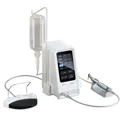
Healthcare insurance serves as a financial safety net, providing coverage for medical expenses incurred before and after hospitalisation. Understanding the complexities of pre and post-hospitalisation coverage is crucial for making informed decisions about your health plan.
In this article, we will have a look at the key aspects of pre and post-hospitalisation expenses, empowering you to maximise the benefits of your health insurance coverage.
Pre-Hospitalisation Expenses
Before seeking hospital admission, patients generally avail medical services like diagnosis and prescription. Moreover, there are certain diseases for which hospitalisation may not be required. The best health insurance plans also provide coverage for such expenses, as discussed below:
Diagnostic Tests and Consultations
Before a hospitalisation event, patients often undergo diagnostic tests and consultations. Many health plans cover these pre-hospitalisation expenses, including costs related to laboratory tests, imaging, and doctor consultations. It's essential to review your policy to identify the specific tests and consultations covered and the duration of coverage before hospitalisation.
Outpatient Care
Certain medical treatments and procedures don't require hospitalisation but may still incur expenses. Outpatient care, such as minor surgeries, chemotherapy, or dialysis, may be covered under pre-hospitalisation benefits. Familiarise yourself with the list of outpatient procedures covered by your health plan to ensure comprehensive coverage.
Medication Costs
Prescription medications prescribed before hospitalisation may also be included in the pre-hospitalisation coverage. Ensure that your health insurance policy outlines the duration and extent of medication coverage, allowing you to plan for any out-of-pocket expenses related to pre-hospitalisation prescriptions.
Post-Hospitalisation Expenses
After patients are released from the hospital, their medical care may continue. Various costs can arise during post-hospitalisation care; therefore, the appropriate insurance plan will cover them as part of the list of inclusions. The most common post-hospitalisation expenses are discussed below:
Recovery Period Coverage
The period following hospitalisation is critical for recovery, and health plans often extend coverage to post-hospitalisation expenses. This includes follow-up consultations, medications, and diagnostic tests required for monitoring and ensuring a smooth recovery. Understanding the duration of post-hospitalisation coverage is essential for managing expenses during the recovery phase.
Follow-up Consultations
Post-hospitalisation care often involves follow-up consultations with healthcare providers. These consultations may include check-ups, wound care, or rehabilitation sessions. Confirm with your healthcare insurance provider about the coverage for post-hospitalisation consultations, ensuring that you can access necessary medical care without incurring additional financial burdens.
Medication and Rehabilitation Costs
Continued medication and rehabilitation expenses during the post-hospitalisation period are common. Health plans may cover the costs of prescribed medications and rehabilitation services to support the recovery process. Review the policy details to understand the extent of coverage and any limitations on medication or rehabilitation expenses.
Key Considerations for Policyholders
While selecting a best health insurance company in india, you must read the policy documents carefully, paying special attention to the following provisions:
Coverage Limits and Sub-limits
Health plans often have coverage limits and sub-limits for pre and post-hospitalisation expenses. The coverage limit represents the maximum amount the insurance provider will pay for medical expenses, while sub-limits may apply to specific categories of expenses, such as room rent or diagnostic tests. Carefully review these limits to ensure that your policy adequately covers potential expenses.
Waiting Periods
Some health plans have waiting periods for certain coverage, including pre and post-hospitalisation benefits. A waiting period is the time between purchasing the policy and when coverage becomes effective. Be aware of any waiting periods to plan for potential gaps in coverage.
Documentation and Claims Process
Understanding the documentation required for pre and post-hospitalisation claims is crucial. Keep thorough records of all medical expenses, including bills, prescriptions, and diagnostic reports. Familiarise yourself with the claims process outlined by your insurance provider to facilitate a smooth reimbursement process.
Final Words
A comprehensive understanding of pre and post-hospitalisation expenses is essential for leveraging the full benefits of your health plan. By carefully reviewing your policy details, including coverage limits, waiting periods, and documentation requirements, you can make informed decisions about your healthcare financing.
In a world where health uncertainties are inevitable, a well-informed approach to the best health insurance plan ensures that you can concentrate on recovery without the added stress of financial concerns. Insurers like Niva Bupa can assist you in this endeavour by offering customised health plans for comprehensive coverage of pre and post-hospitalisation, accident care, critical illness, travel insurance, and more. Head on to their website to know more about their plans.
You Might Like Also

Top Benefits of Mediclaim Insurance Policies

Top Health Insurance Travel Tips

Plan Your Holiday Expenses for a Trip from India to France
















